How To Get Rid Of Indurated Skin
A combination of the right medical treatment and skincare routine can help manage thick skin.
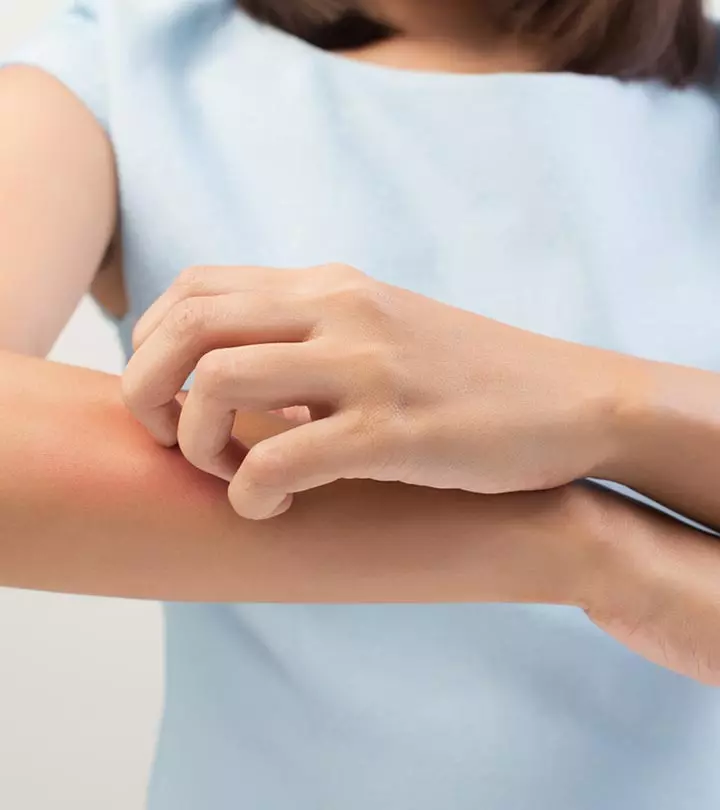
Image: iStock
Skin induration refers to deep and thickened skin. It makes your skin look smooth and shiny but feel firmer. Such indurated skin turns hard and feels more resistant/thicker than the skin around it and leathery to touch. This article discusses the symptoms of this condition along with its causes, treatments, and more. Continue reading.
In This Article
Signs And Symptoms Of Indurated Skin
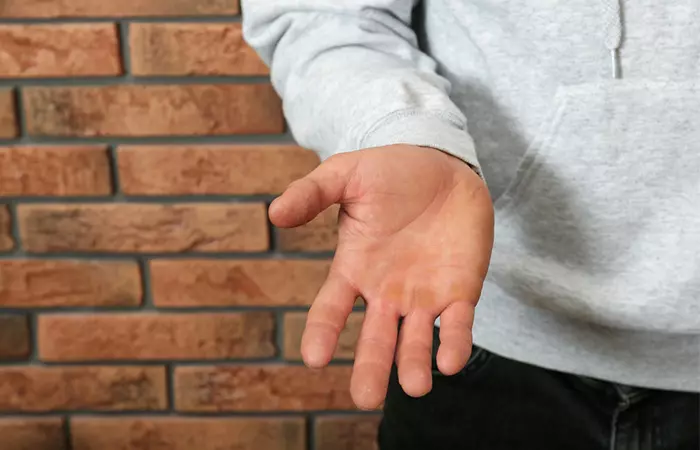
Indurated skin is thicker in comparison to the surrounding area. It may be accompanied by symptoms like:
- Smooth and shiny skin
- Swelling
- Redness
- Raised skin
- Inflammation
- Skin infiltration
- Increased skin firmness
You may be wondering what causes skin induration? Read the next section to find out!
Key Takeaways
- Symptoms like swelling, redness, inflammation accompany indurated skin.
- Skin infection, cutaneous metastatic cancers, and panniculitis are major causes of skin induration.
- You can use immunosuppressants and steroid creams for inflammatory disorders like scleroderma.
Major Causes Of Indurated Skin
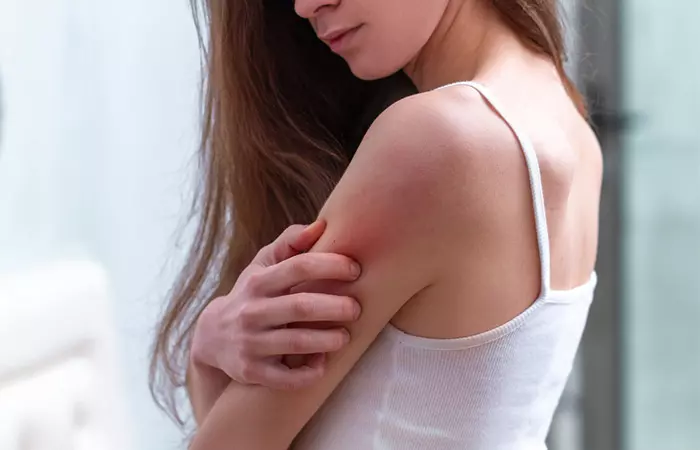
Skin induration is a skin condition where the skin becomes thick and hard. Although not scientifically proven, it is often caused by infections, skin inflammation, cancer, or underlying conditions. Since it can be a sign of serious underlying conditions, it is important to understand the cause and see a doctor as soon as possible.
There are many different purported causes for indurated skin, like:
- Skin Infection: Skin infections caused by an inflamed cyst or an insect bite can show signs of skin induration. It may also cause inflammation disorders, tissue disorders, or trauma to the area that may lead to toughened and calloused skin.
- Cutaneous Metastatic Cancers: Indurated skin can occur when cells from cancer spread to the skin.
- Panniculitis: This is an inflammation in the body’s fat tissue.
, MD, a board-certified dermatologist, adds, “Some causes include internal triggers such as autoimmune disease. In conditions such as scleroderma, the skin may feel sclerotic or hardened, and it loses elasticity. In other cases, such as diabetes, the upper back may feel stiff, hardened, and even hyperpigmented in appearance. This is known as scleroderma and can be diagnosed by biopsy.”
Elaine, a lifestyle content creator, saw the first signs of scleroderma on the skin on her hands. Recounting her experience in one of her videos, she says, “My hands looked like they had been dipped in acid from my wrist down, and it started to spread up my wrist. And when I mean dipped in acid, I mean they were red like beet red (i).”
 Trivia
TriviaTalk to a healthcare professional when you experience any of the symptoms mentioned above. In the next section, learn how your doctor may diagnose the condition.
How To Diagnose Skin Induration
A dermatologist may do a physical check-up to determine the underlying cause of your skin induration. A biopsy may also be performed to rule out cancer.
Treatment of skin induration depends on the underlying cause. The following section provides some possible treatment options. Keep scrolling!
Treatment Options Available
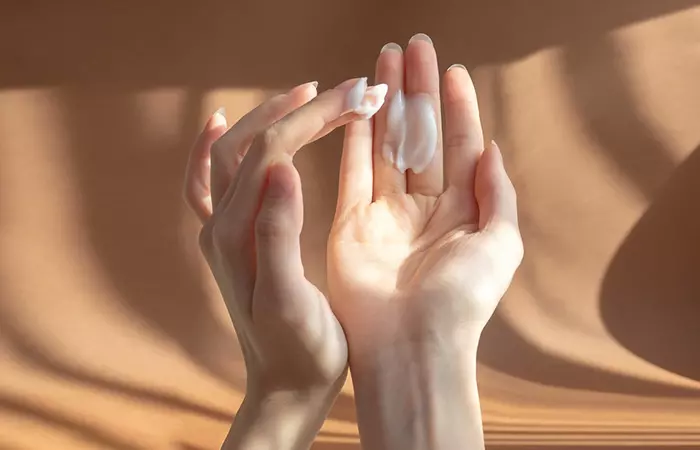
The source of the induration determines its treatment. Treatment options may include the following.
- For inflammatory disorders like scleroderma, immunosuppressantsi Powerful drugs that prevent your immune system from destroying healthy cells and tissues by mistake. and steroid creams can be used.
- For conditions like an abscessi An internal or external growth caused by the accumulation of pus in cells or tissues due to a bacterial infection. , antibiotics or an incision and drainage procedure may be used.
says, “The best treatment options usually stem from getting down to the root of the problem. If the causative factor is an autoimmune disease, immune-mediated medications will help. If the patient has diabetes and presents with scleroderma, better control of their blood sugars will be useful. For treatment of lichenificationi A skin condition due to constant rubbing and scratching over a long period of time that causes the skin to become dry, flaky, and thick. and hypertrophic scarsi The elevated part of the skin that appears after an injury and becomes less visible as time passes. , topical and sometimes injectable steroids are used.”
 Quick Tip
Quick TipWe have included some tips and suggestions in the following section to help you prevent skin induration. Check them out.
Prevention Tips
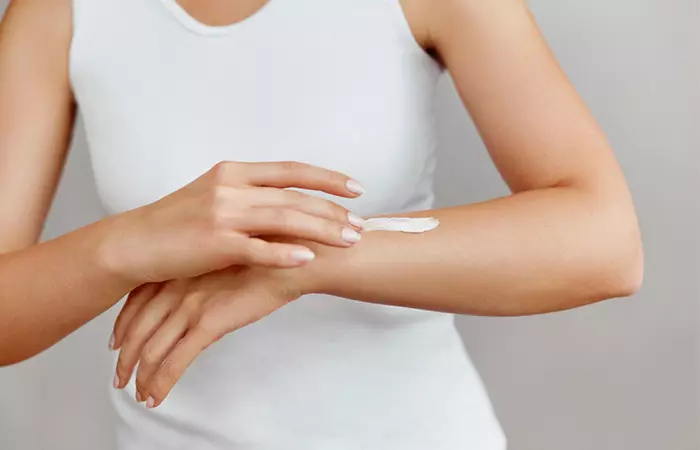
- Moisturize your skin daily.
- Use a soothing emollient that retains water, like petroleum jelly.
- Avoid alcohol-based products that may dry out the skin.
- If you are susceptible to insect bites, use a repellent to keep the bugs at bay.
- Avoid scratching the affected area.
- Use warm compresses at the first sign of induration.
- Control your blood sugar if you have diabetes.
- Seek medical help for treating cysts.
- Maintain a balanced diet of antioxidants, anti-inflammatory foods and healthy fats that promote skin health.
Induration is often confused with fluctuance, another skin condition. Check out the next section to learn how they differ.
Fluctuance Vs. Induration
Fluctuance refers to the boggy sensation when an area of the skin is touched. This is probably due to the accumulation of pus beneath the epidermis (the top layer of the skin). When a healthcare professional detects an abscess as fluctuant through an ultrasound, they also determine the location and size of the abscess. Fluctuance suggests that there may be an accumulation of infected material, and it may need to be drained to relieve the pressure and promote healing.
Induration, on the other hand, indicates a localized hardening or thickening of the skin or soft tissues due to inflammation or other factors.
Skin induration has many causes and risk factors. If you feel there are any changes in your skin, consult your doctor at the earliest.
When To See A Doctor
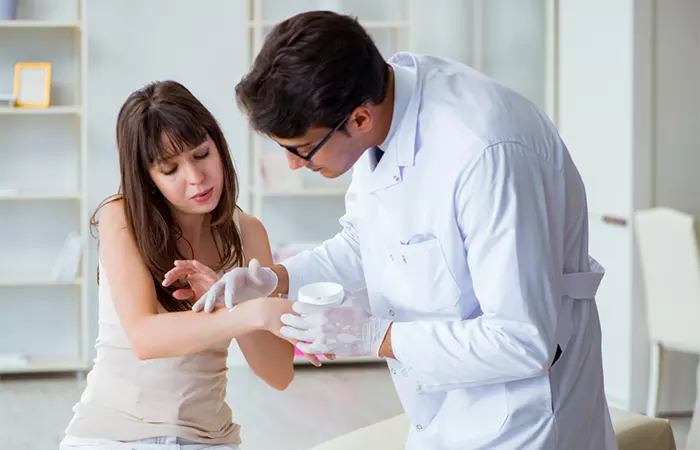
Consult a doctor if you experience any of the symptoms mentioned below:
- If you develop a skin lesion/lesions for no apparent reason. It may signify an underlying health issue.
- If the lesion turns painful.
- If your skin turns hard, bumpy, and thick.
- If the texture of your skin changes.
- If the affected area is keratinized and fibrotic.
- If you notice the area is cicatricial and scarred.
Infographic: What Causes Skin Induration And How To Prevent It
Skin induration is caused by autoimmune disorders and skin infections. Its treatment also depends on its cause. Hence, working on your overall health is key to preventing the condition. In the following infographic, we have listed certain health tips that can help you in this regard. Check them out.
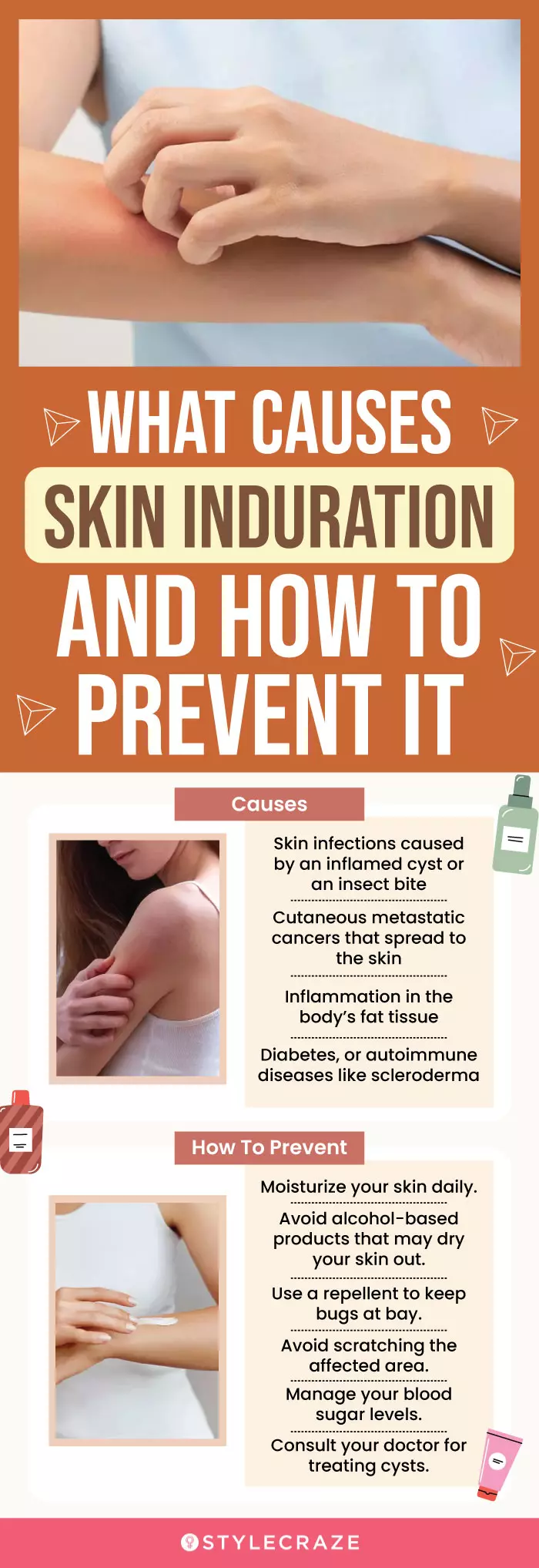
Illustration: StyleCraze Design Team
The Final Takeaway
Skin induration is the thickening of the skin. It appears red and raised from the skin. It may be both firm and smooth. There is a definite change in texture in comparison to the rest of your skin. You can try out the tips and treatments discussed in the article to treat this skin condition. If the skin induration occurs for no apparent reason, consult a doctor right away for an appropriate diagnosis and treatment.
Frequently Asked Questions
How long does skin induration last?
A skin duration can range from months to years or even a lifetime depending on the causes and types of treatments used.
Does skin induration heal on its own?
This depends on the underlying cause. For example, subcutaneous induration is a firmness beneath the skin that commonly occurs around incisions. This type of extreme stiffness can heal in two to three months if appropriately treated.
The most common sign of panniculitis is the formation of painful or tender nodules in the layer of fat beneath your skin. Your doctor will try to treat the underlying cause of the inflammation first. This usually fades within six weeks and leaves no scars behind.
How long does it take induration to resolve?
It may take days to weeks for induration to resolve, as it totally depends on the underlying cause and individual factors.
What is the difference between edema and induration?
Edema is the swelling of the tissues due to fluid accumulation, while induration is the thickening of tissues.
Where can skin induration appear?
Skin induration can appear anywhere on the body, including the back, arms, legs, and abdomen.
Is indurated skin a serious condition?
Typically, indurated skin is not a serious condition but it may be a sign of an underlying issue/issues.
Can indurated skin be contagious?
Indurated skin is not contagious, as it is caused by inflammation or fibrosis in certain parts of the body.
Can indurated skin be itchy or painful?
Indurated skin may be accompanied by itching and pain, depending on the underlying cause.
Are there any home remedies for skin induration?
Applying warm compresses to the affected area, massaging the area, and using fragrance-free moisturizers can help soften the skin and reduce induration over time.
Learn about induration with this informative video. Discover how this process of hardening and thickening of tissue affects your body and stay informed. Check out the video to get started.
Personal Experience: Source
StyleCraze's articles are interwoven with authentic personal narratives that provide depth and resonance to our content. Below are the sources of the personal accounts referenced in this article.
i. My Scleroderma Story: SCL-70 Positivehttps://www.youtube.com/watch?v=_y3wK6Tur08
Read full bio of Dr. Priya Gill
Read full bio of Monomita Chakraborty
Read full bio of Anjali Sayee
Read full bio of Swathi E








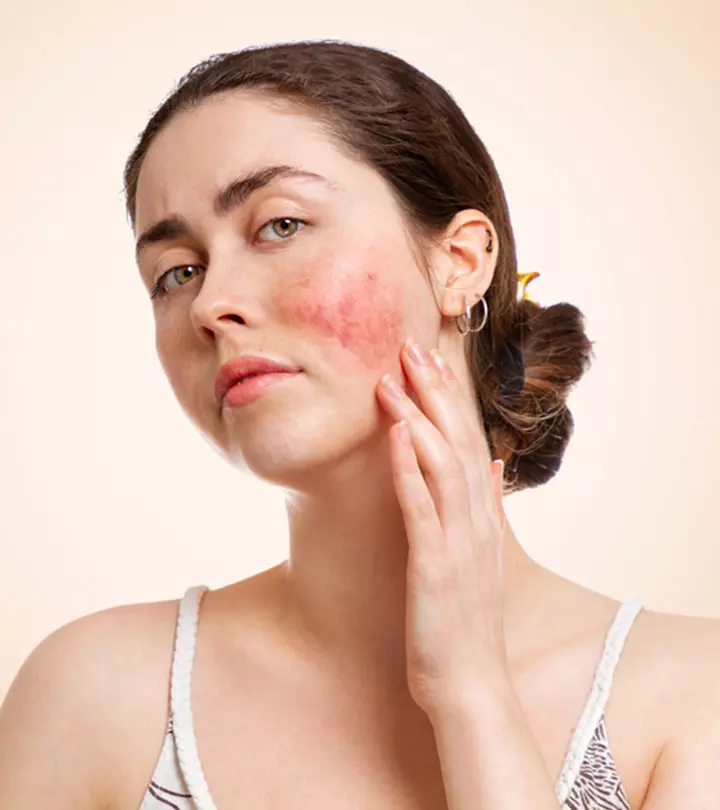
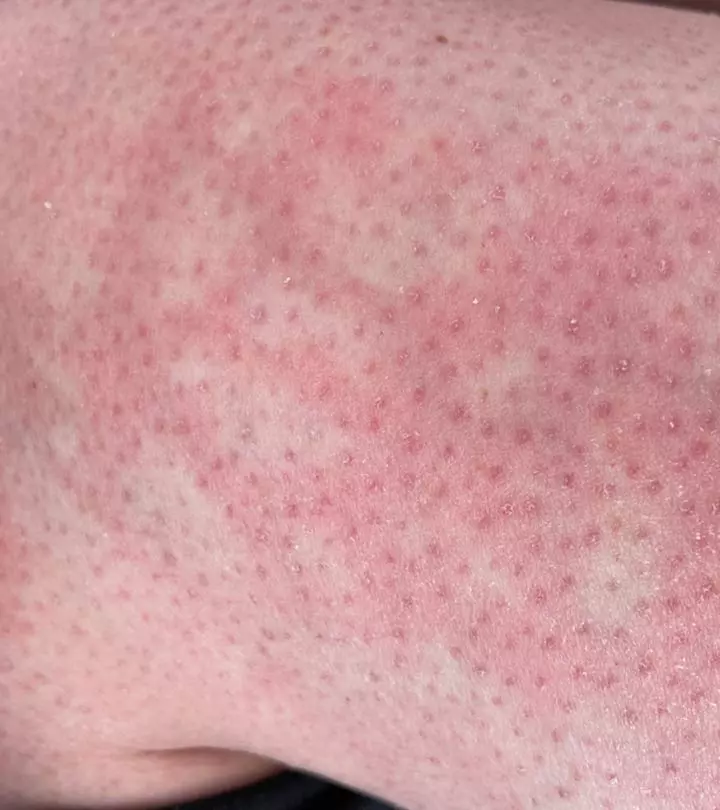
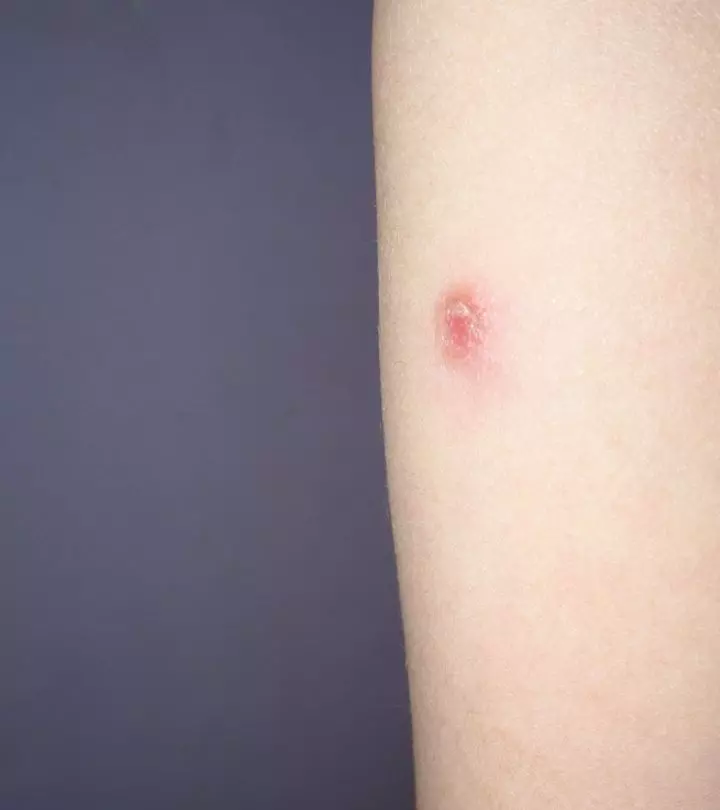
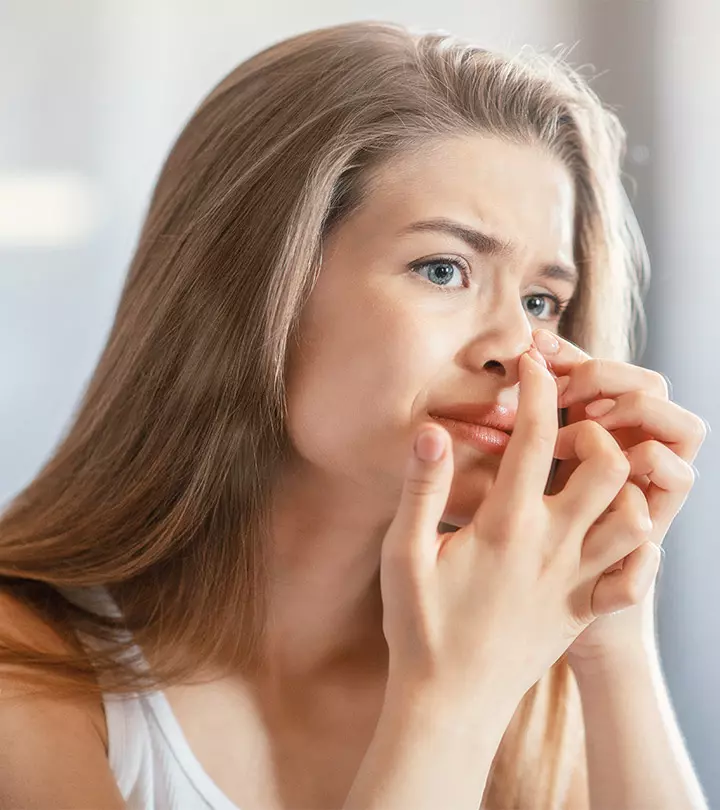
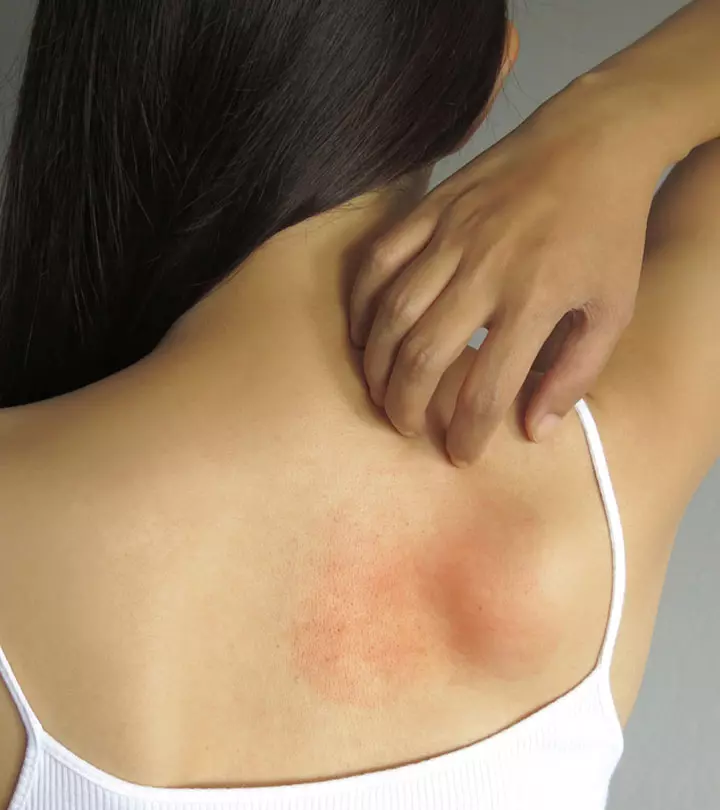


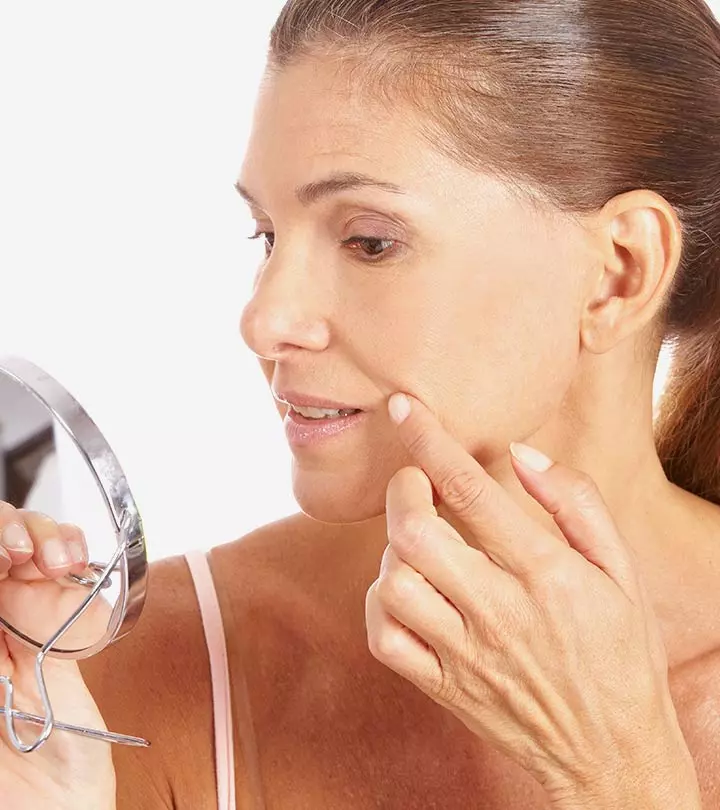
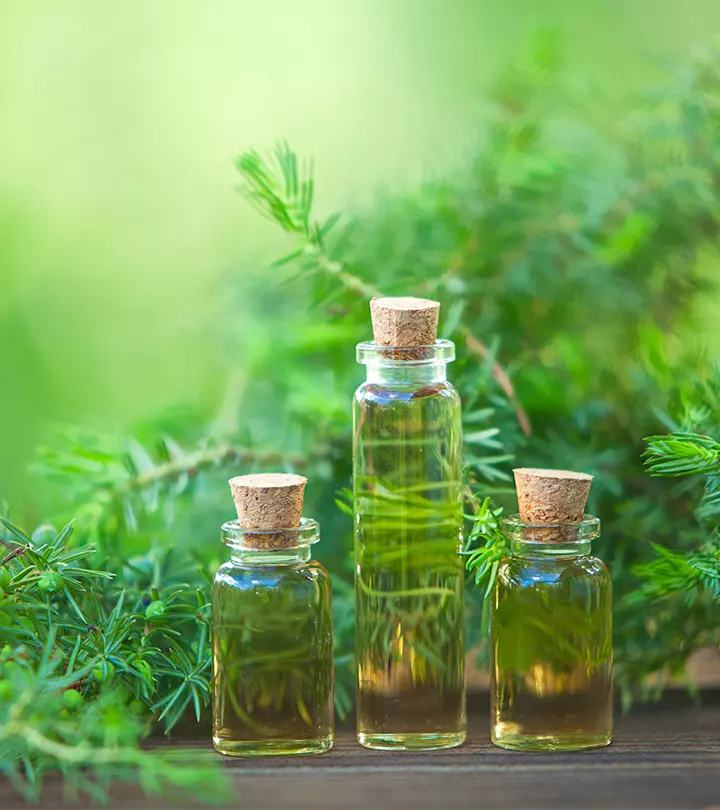

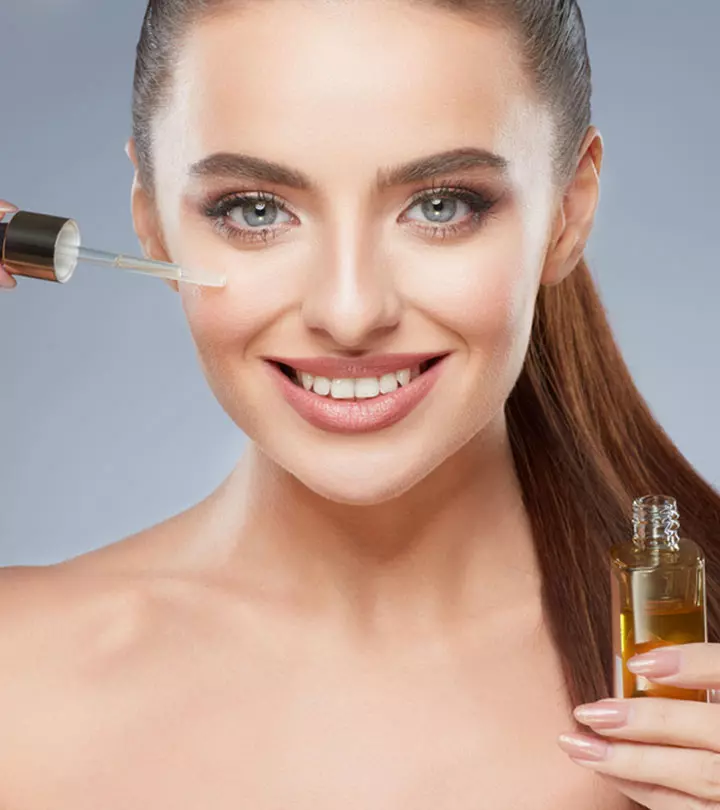
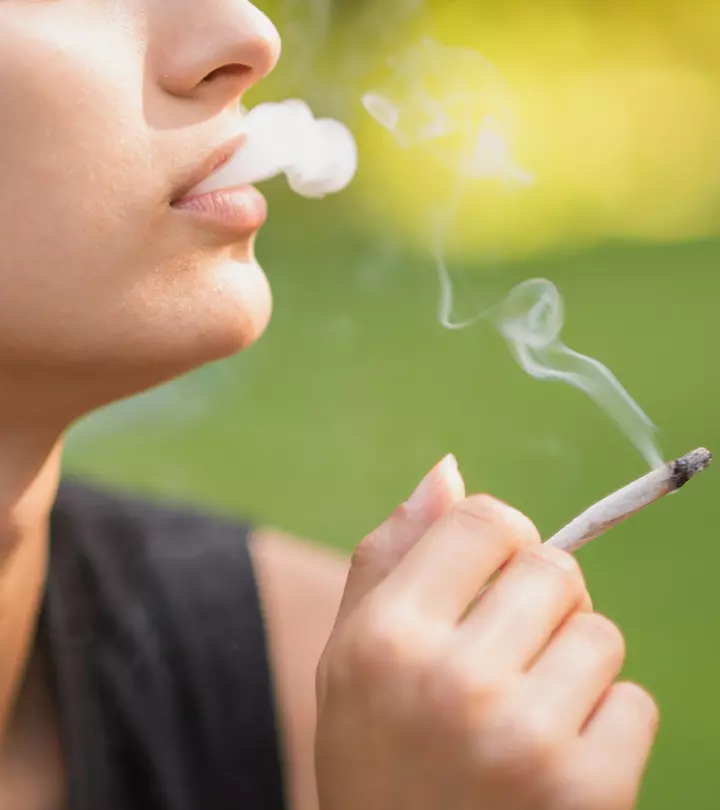
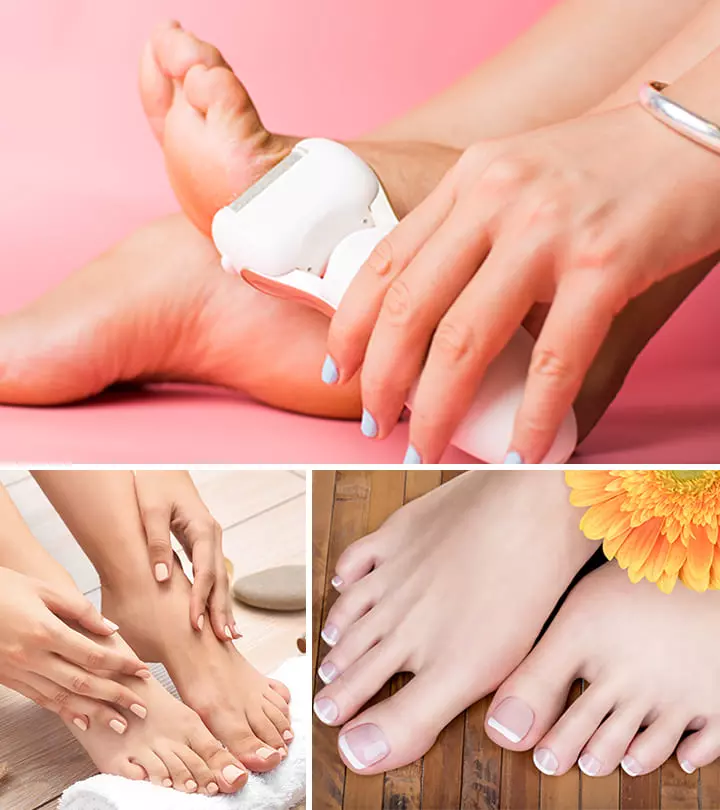
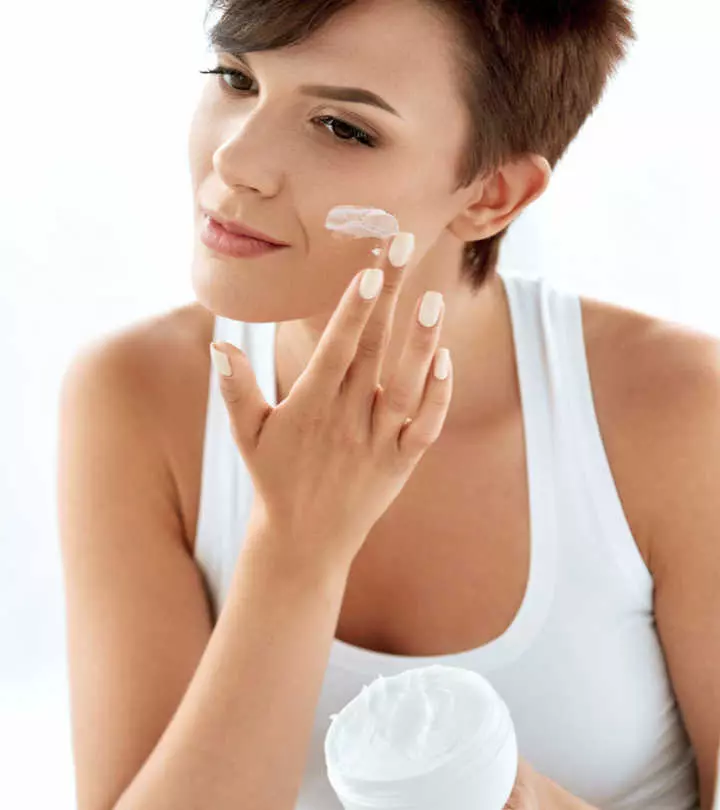
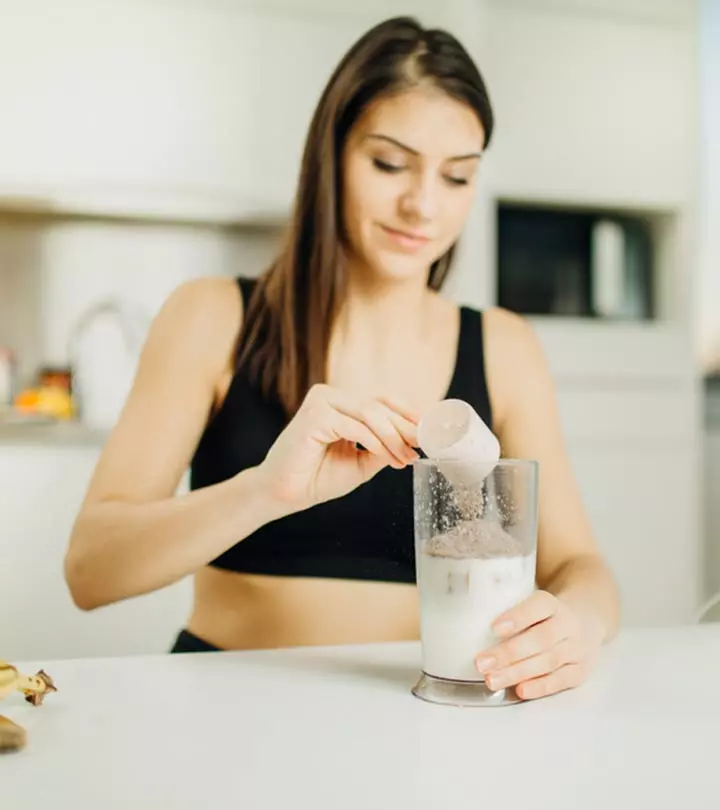
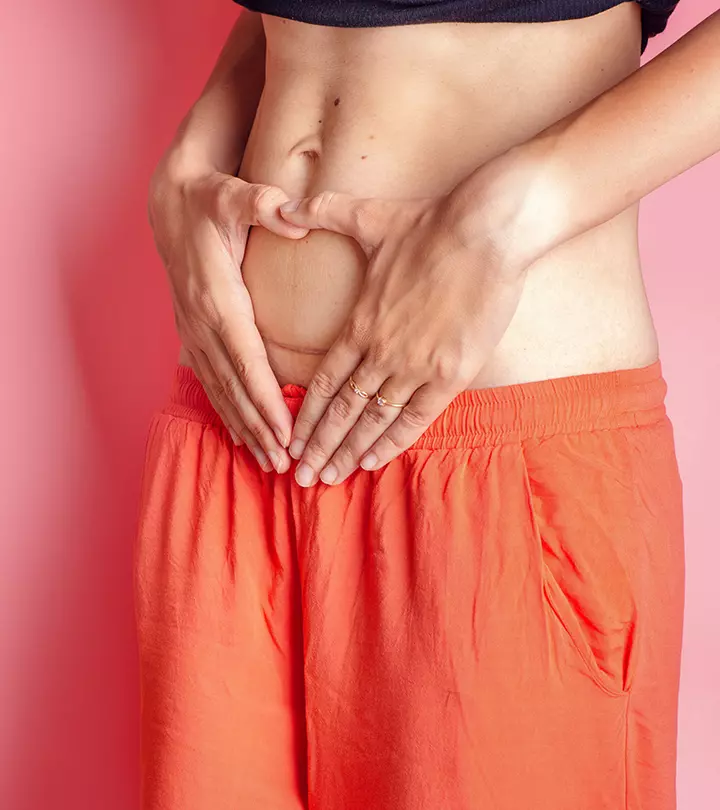
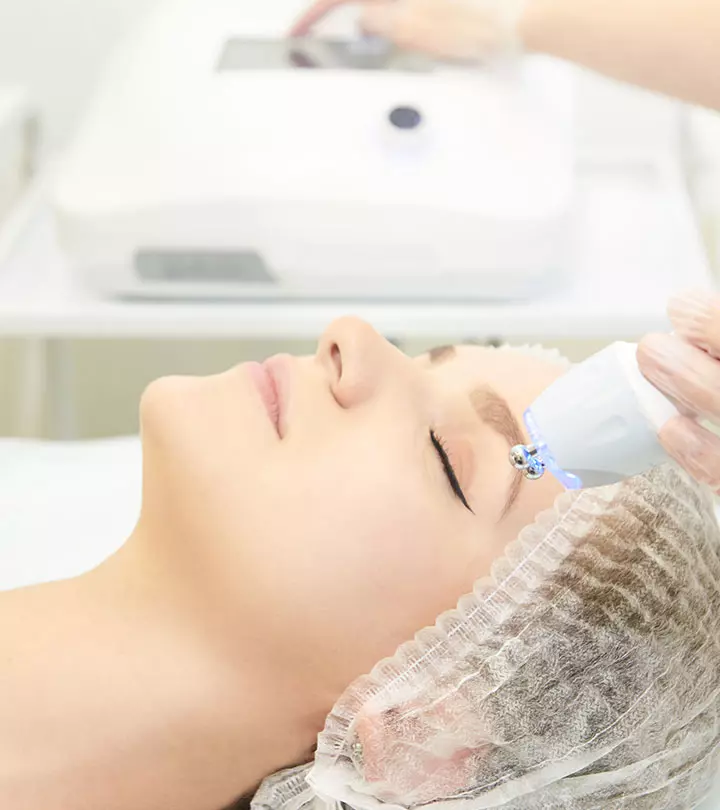
Community Experiences
Join the conversation and become a part of our empowering community! Share your stories, experiences, and insights to connect with other beauty, lifestyle, and health enthusiasts.